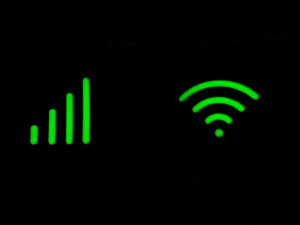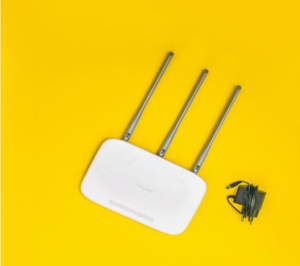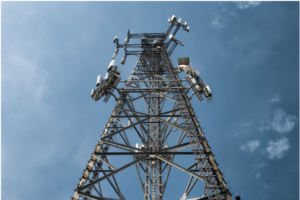In today’s digital age, the internet is an essential tool for communication, work, and entertainment. With the rise of smartphones, we have two primary methods of accessing the internet: Wi-Fi and mobile data. While both options provide internet connectivity, they have distinct differences that can impact their usability, speed, and reliability. In this article, we’ll explore the differences between Wi-Fi and mobile data and help you determine which option is best suited for your needs.
What is Wi-Fi and How Does it Work?
Wi-Fi stands for Wireless Fidelity and as you probably know it’s a networking technology that allows users to connect to the internet without cables. Wi-Fi connects to the internet through a wireless router or access point. The router is connected to a modem, which is then connected to an internet service provider (ISP). Here are the steps involved in how Wi-Fi connects to the internet:
- The Wi-Fi-enabled device sends a request to connect to the wireless network.
- The router receives the connection request and checks to see if the device is authorized to connect to the network.
- If the device is authorized, the router sends a signal to the device allowing it to connect to the network.
- Once connected, the device can communicate with other devices on the same network and access the internet through the router.
- When a device requests data from the internet, the router sends the request to the modem.
- The modem sends the request to the ISP, which retrieves the data from the internet.
- The data is sent back through the ISP to the modem, which then sends it to the router.
- The router sends the data to the connected device, allowing it to access the internet.
The data is transmitted wirelessly between the device and the router using radio waves, which are picked up by the device’s Wi-Fi antenna and translated into digital data. The router acts as a gateway between the devices on the Wi-Fi network and the internet, allowing devices to send and receive information from the internet or other networks.
What Is Mobile Data And How Does It Work?
Before we go into this, let me clear up one common misconception: mobile data and cellular networks are not the same thing. Cellular network refers to the network infrastructure and technology like cell towers, radio frequency, etc. that allows mobile devices to connect to the internet. Mobile data on the other hand refers to the actual data transmission over that network. It is the information transmitted over the network when a mobile device accesses the internet or other networks.
Mobile Data refers to digital information that is transferred wirelessly over a cellular network. It works by sending and receiving digital information between a mobile device like your smartphone and the internet through a cellular network. Here’s a better look at how the process goes:
- The mobile device sends a request for data to be transmitted to another device or to the internet.
- The request is sent wirelessly over a cellular network using radio waves.
- The radio waves are picked up by the nearest cell tower, which relays the request to the nearest base station.
- The base station then routes the request to the appropriate destination.
- Once the data is received by the destination, a response is sent back to the mobile device through the same process in reverse.
- The mobile device receives the response and processes the data.
Next, let’s look into some pros and cons.
Pros of Wi-Fi
Faster Speeds
Wi-Fi usually offers faster speeds than mobile data, especially when you are connected to a high-speed broadband connection.
Cost-effective
If you have access to free public Wi-Fi, you can save money on your mobile data plan.
Stable Connection
When connected to a strong Wi-Fi signal, the connection is generally more stable than mobile data.
More Devices
You can connect multiple devices to a Wi-Fi network, allowing several people to use the internet simultaneously.
Costs Less
Wi-Fi plans usually are cheaper than mobile data plans. This is because it’s easier to set up and maintain compared to mobile data.
Cons of Wi-Fi
Short Range
Wi-Fi has a relatively small range, so you must be close to the router to use it. And internet speed decreases the farther you are from the router.
Security Risk
Public Wi-Fi networks aren’t always secure, and using them can put your personal information at risk.
Interference
Wi-Fi signals can be interfered with by other devices and physical barriers like walls, resulting in a weaker connection.
Congestion
Once Wi-Fi networks and channels get congested or when a connected user does high bandwidth activities, internet speed starts to drop.
 Pros of Mobile Data
Pros of Mobile Data
Portability
Mobile data allows you to connect to the internet on the go, without the need for a Wi-Fi network.
Wide Coverage
Mobile data coverage is generally widespread and available in nearly all areas. For example, Verizon’s cellular network currently covers 98 percent of the United States.
Secure
Mobile data networks are generally more secure than public WiFi networks and even private ones. This is because there’s encryption on data sent to and from the cellular network.
Cons of Mobile Data
Slower Speeds
Mobile data can be slower than Wi-Fi, especially when you are in a crowded area or far from a cell tower. 4G and 5G cell towers can support a large number of people simultaneously. They have a range of 25-45 miles and 1-3 miles respectively.
Limited Data
Most mobile data plans have a limited amount of data available each month, and exceeding your data limit can result in additional charges.
Higher Cost
Mobile data plans can be more expensive than Wi-Fi, especially if you require a large amount of data each month.
Limited Connectivity
Some areas may have poor mobile data coverage, resulting in limited connectivity or no connectivity at all.
Battery Usage
Mobile data uses your smartphone’s battery more than Wi-Fi.
Which is better– Wi-Fi or Mobile Data?
Both Wi-Fi and Mobile data have their pros and cons. But if you look carefully you’d observe that usually where mobile data lacks Wi-Fi is there to make up and vice-versa. So there is no absolutely superior one instead they compliment each other and are meant to be used together.



 Pros of Mobile Data
Pros of Mobile Data




